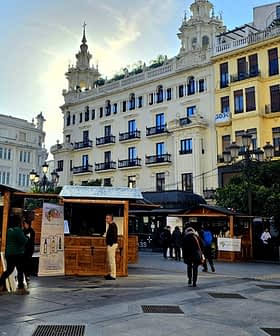Ahead of the pending approval of the European Union’s Common Agricultural Policy (CAP) this week, Spain’s Minister of Agriculture, Fishing and Food has pledged support for traditional olive growers.
“We will develop a specific program because it is very important for the sector’s ability to compete,” Luis Planas told the Spanish Senate.
According to Juan Vilar Strategic Consultants, traditional groves make up about 70 percent of all Spanish olive groves.
See Also:Spanish Olive Growers Replacing Century-Old Trees With Young OnesSince the traditional olive production sector employs 350,000 workers, including 15,000 jobs in mills, and pays almost €32 million in wages annually, it is “something worth fighting for,” Planas added.
The CAP 2023 – 27 will allow each member state of the E.U. to propose its own strategic plan to implement the new policy. Chief among the goals of the CAP is to promote family farming operations.
The government’s plan to bolster traditional olive production is also part of a 10-pronged plant that it implemented last year. Planas told the senate that this plan had contributed to the improved marketing, quality and promotion of olive oil as a healthy and emblematic product of the Mediterranean diet.
He pointed to government projections that domestic olive oil consumption is expected to reach 550,000 tons and exports would hit 1.13 million tons by the end of the 2020/21 crop year, both of which are record highs, as evidence that the plan is working.
Planas added that the European Commission’s estimate that global olive oil consumption is anticipated to grow five percent by the end of the decade paired with the decision of the United States and E.U. to cancel the tariffs associated with the Airbus-Boeing trade dispute as reasons for the sector to be optimistic.
In conclusion, he pointed out that if it is taken into account that olive oil represents only three percent of total global vegetable oil consumption, “the opportunities are immense.”








